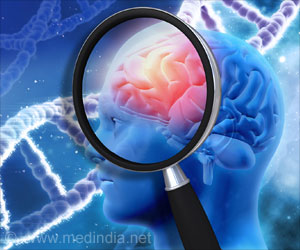Stimulation of a brain region called the lateral orbitofrontal cortex (OFC) helps boost mood in people suffering from depression.

TOP INSIGHT
Besides being a target for therapeutic stimulation, OFC is also interconnected with other brain regions involved in emotional processing.
The team led by Rao and Kristin Sellers in the lab of Edward Chang studied 25 patients with epilepsy who had electrodes placed in the brain for medical reasons to pinpoint the origin of their seizures. Many of those patients also suffered from depression, which is often seen in people with epilepsy. With the patients' consent, Chang's team took advantage of those electrodes to deliver small electrical pulses to areas of the brain thought to be involved in regulating mood.
Previous studies have explored deep brain stimulation (DBS) for mood disorders, but its success depends critically on target selection. Targets in other mood-related areas deep in the brain hadn't always led to reliable improvements.
In the new study, the researchers focused their attention and the electrical stimulation on the OFC. The OFC is a key hub for mood-related circuitry. But it's also widely regarded as one of the least well-understood brain regions.
"Although OFC is a more superficial target, it shares rich interconnections with several brain regions implicated in emotion processing," Sellers says. That made this relatively small brain area an attractive target for therapeutic stimulation.
The findings show that mood can be immediately improved by electrical stimulation of a relatively small area of brain, the researchers say. They also add to evidence that mood disorders are the result of dysfunction in brain circuits.
"Ultimately, it would be ideal if activity in mood-related brain circuits could be normalized indefinitely without patients needing to do anything," Rao says.
Source-Eurekalert
 MEDINDIA
MEDINDIA




 Email
Email










